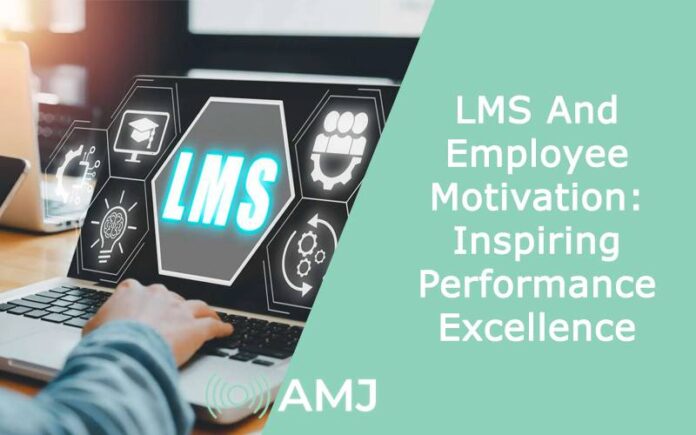Owing to emerging competition, companies always look for ways to boost employee productivity and motivation. One popular approach is the utilization of Learning Management Systems (LMS) to enhance employee training and development programs. Implementing an LMS solution enhances skill sets, increases productivity, and heightens motivation. All of which ultimately contribute to accomplishing business objectives and sustaining growth. With the appropriate LMS, organizations can ensure that their employees have access to the resources to excel in their roles, thereby positioning themselves for long-term success.
This article explores the aspects of an LMS and how it can contribute to inspiring performance within organizations.
Contents
What Exactly is an LMS?
A Learning Management System (LMS) is a software application that enables businesses to manage, document, track, and deliver courses or training programs. Employees can access training resources anytime and anywhere using an LMS, making it a convenient tool for learning and personal growth.
How Does an LMS Improve Employee Motivation?
1. Accessibility & Flexibility
LMS like Latitude Learning, Bites Learning, Thinkific, Teachable, and others allow employees to learn at their own pace and convenience. They can easily access training materials from their computers or mobile devices, eliminating any time constraints associated with classroom-based training. This accessibility empowers employees to learn during working hours or while on the move, resulting in enhanced time management and increased motivation.
2. Tailored Learning Paths
Each employee possesses skill sets and learning requirements. A designed LMS allows for personalized learning paths based on individual roles. This personalized approach guarantees that employees are empowered to gain the knowledge and skills needed for their job roles, enabling them to perform more effectively. Tailored learning paths lead to increased levels and drive motivation among employees.
3. Utilizing Gamification
Many organizations utilize gamification as a strategy through an LMS platform. Incorporating game elements, such as quizzes, challenges, badges, leaderboards, etc., into the training modules or courses provided via the LMS system encourages employees to participate in learning. The element of competition heightens engagement levels while offering a fun and interactive way of acquiring skills, fostering a sense of motivation among employees.
4. Mobile Learning Option
The emergence of smartphones and tablets has revolutionized how we access information. An LMS application that supports mobile learning ensures that employees can conveniently continue their learning journeys beyond workspaces. This flexibility to learn on the go maximizes productivity and allows employees to make the most of their commuting time or downtime. Such a mobile learning approach nurtures a culture of improvement and self-motivation.
How Does an LMS Impact Performance Excellence?
1. Ongoing Professional Development
Employee development plays a significant role in achieving performance excellence within any organization. A Learning Management System (LMS) allows companies to provide a range of training programs catering to aspects relevant to employees’ roles and responsibilities. By upskilling and reskilling, employees can acquire competencies, ultimately leading to improved performance standards across the organization.
2. Knowledge Retention
One advantage of using an LMS is that it addresses the issue of knowledge retention often encountered in classroom-based training. Lengthy sessions and limited reinforcement opportunities can hinder retention among employees. However, with an LMS, employees can review training materials at their own pace and revisit content whenever needed, reinforcing learning objectives over time.
3. Tracking Progress & Performance Analytics
Additionally, an LMS provides tracking capabilities that allow employers to monitor employee progress easily. Through the system’s analytics, managers can stay informed about completed courses, obtained certifications, and overall performance levels. This data-driven approach supports performance evaluations while identifying gaps in knowledge or skills that require interventions for continuous improvement.
End Note
A robust learning management system plays a significant role in inspiring performance excellence among a business’s workforce. By utilizing the advantages of accessibility and flexibility of personalized learning paths, the use of gamification elements, mobile learning options, development opportunities, effective knowledge retention techniques, and tracking progress and performance analytics provided by LMS platforms, companies can effectively cultivate a more engaged workforce with improved capabilities.












![Index of Money Heist [Season 1, 2, 3 & 4 – All Episodes, Cast and Plot] Index of Money Heist](https://www.asiamediajournal.com/wp-content/uploads/2021/05/Index-of-Money-Heist-3-100x70.jpg)